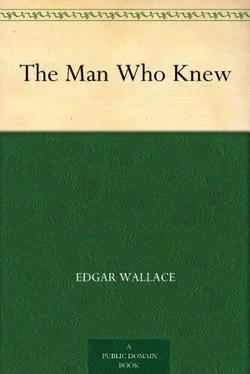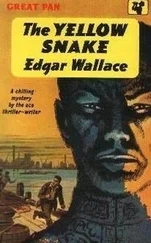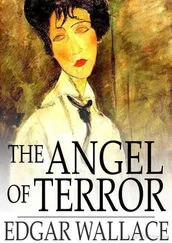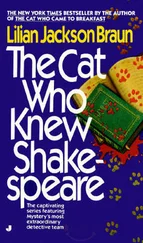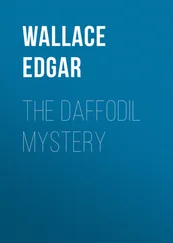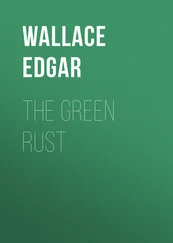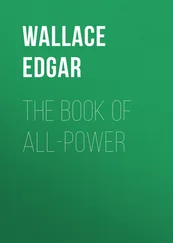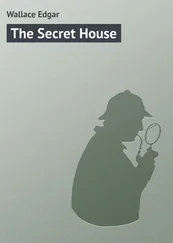"What had he to gain? I ask you to believe that if he is acquitted he will have achieved all that he ever hoped to achieve."
There was a little murmur in the court. Frank Merrill, leaning on the ledge of the dock, looked down at the girl in the body of the court, and their eyes met. He saw the indignation in her face and nodded with a little smile, then turned again to the counsel with that eager, half-quizzical look of interest which the girl had so often seen upon his handsome face.
"Much will be made, in the course of this trial, of the presence of another man, and the defense will endeavor to secure capital out of the fact that the man Crawley, who it was suggested was in the house for an improper purpose, has not been discovered. As to the fourth man, the driver of the motor car, there seems little doubt but that he was an accomplice of Merrill. This mysterious Rex Holland, who has been identified by Mrs. Totney, of Uckfield, spent the whole of the day wandering about Sussex, obviously having one plan in his mind, which was to arrive at Mr. Minute's house at the same time as his confederate.
"You will have the taxi-driver's evidence that when Merrill stepped down, after being driven from the station, he looked left and right, as though he were expecting somebody. The plan to some extent miscarried. The accomplice arrived ten minutes too late. On some pretext or other Merrill probably left the room. I suggest that he did not go into the dining room, but that he went out into the garden and was met by his accomplice, who handed him the weapon with which this crime was committed.
"It may be asked by the defense why the accomplice, who was presumably Rex Holland, did not himself commit the crime. I could offer two or three alternative suggestions, all of which are feasible. The deceased man was shot at close quarters, and was found in such an attitude as to suggest that he was wholly unprepared for the attack. We know that he was in some fear and that he invariably went armed; yet it is fairly certain that he made no attempt to draw his weapon, which he certainly would have done had he been suddenly confronted by an armed stranger.
"I do not pretend that I am explaining the strange relationship between Merrill and this mysterious forger. Merrill is the only man who has seen him and has given a vague and somewhat confused description of him. 'He was a man with a short, close-clipped beard' is Merrill's description. The woman who served him with tea near Uckfield describes him as a 'youngish man with a dark mustache, but otherwise clean shaven.'
"There is no reason, of course, why he should not have removed his beard, but as against that suggestion we will call evidence to prove that the man seen driving with the murdered chauffeur was invariably a man with a mustache and no beard, so that the balance of probability is on the side of the supposition that Merrill is not telling the truth. An unknown client with a large deposit at his bank would not be likely constantly to alter his appearance. If he were a criminal, as we know him to be, there would be another reason why he should not excite suspicion in this way."
His address covered the greater part of a day—but he returned to the scene in the garden, to the supposed meeting of the two men, and to the murder.
Saul Arthur Mann, sitting with Frank's solicitor, scratched his nose and grinned.
"I have never heard a more ingenious piece of reconstruction," he said; "though, of course, the whole thing is palpably absurd."
As a theory it was no doubt excellent; but men are not sentenced to death on theories, however ingenious they may be. Probably nobody in the court so completely admired the ingenuity as the man most affected. At the lunch interval on the day on which this theory was put forward he met his solicitor and Saul Arthur Mann in the bare room in which such interviews are permitted.
"It was really fascinating to hear him," said Frank, as he sipped the cup of tea which they had brought him. "I almost began to believe that I had committed the murder! But isn't it rather alarming? Will the jury take the same view?" he asked, a little troubled.
The solicitor shook his head.
"Unsupported theories of that sort do not go well with juries, and, of course, the whole story is so flimsy and so improbable that it will go for no more than a piece of clever reasoning."
"Did anybody see you at the railway station?"
Frank shook his head.
"I suppose hundreds of people saw me, but would hardly remember me."
"Was there any one on the train who knew you?"
"No," said Frank, after a moment's thought. "There were six people in my carriage until we got to Lewes, but I think I told you that, and you have not succeeded in tracing any of them."
"It is most difficult to get into touch with those people," said the lawyer. "Think of the scores of people one travels with, without ever remembering what they looked like or how they were dressed. If you had been a woman, traveling with women, every one of your five fellow passengers would have remembered you and would have recalled your hat."
Frank laughed.
"There are certain disadvantages in being a man," he said. "How do you think the case is going?"
"They have offered no evidence yet. I think you will agree, Mr. Mann," he said respectfully, for Saul Arthur Mann was a power in legal circles.
"None at all," the little fellow agreed.
Frank recalled the first day he had seen him, with his hat perched on the back of his head and his shabby, genteel exterior.
"Oh, by Jove!" he said. "I suppose they will be trying to fasten the death of that man upon me that we saw in Gray Square."
Saul Arthur Mann nodded.
"They have not put that in the indictment," he said, "nor the case of the chauffeur. You see, your conviction will rest entirely upon this present charge, and both the other matters are subsidiary."
Frank walked thoughtfully up and down the room, his hands behind his back.
"I wonder who Rex Holland is," he said, half to himself.
"You still have your theory?" asked the lawyer, eying him keenly.
Frank nodded.
"And you still would rather not put it into words?"
"Much rather not," said Frank gravely.
He returned to the court and glanced round for the girl, but she was not there. The rest of the afternoon's proceedings, taken up as they were with the preliminaries of the case, bored him.
It was on the twelfth day of the trial that Jasper Cole stepped on to the witness stand. He was dressed in black and was paler than usual, but he took the oath in a firm voice and answered the questions which were put to him without hesitation.
The story of Frank's quarrel with his uncle, of the forged checks, and of his own experience on the night of the crime filled the greater part of the forenoon, and it was in the afternoon when Bryan Bennett, one of the most brilliant barristers of his time, stood up to cross-examine.
"Had you any suspicion that your employer was being robbed?"
"I had a suspicion," replied Jasper.
"Did you communicate your suspicion to your employer?"
Jasper hesitated.
"No," he replied at last.
"Why do you hesitate?" asked Bennett sharply.
"Because, although I did not directly communicate my suspicions, I hinted to Mr. Minute that he should have an independent audit."
"So you thought the books were wrong?"
"I did."
"In these circumstances," asked Bennett slowly, "do you not think it was very unwise of you to touch those books yourself?"
"When did I touch them?" asked Jasper quickly.
"I suggest that on a certain night you came to the bank and remained in the bank by yourself, examining the ledgers on behalf of your employer, and that during that time you handled at least three books in which these falsifications were made."
Читать дальше
